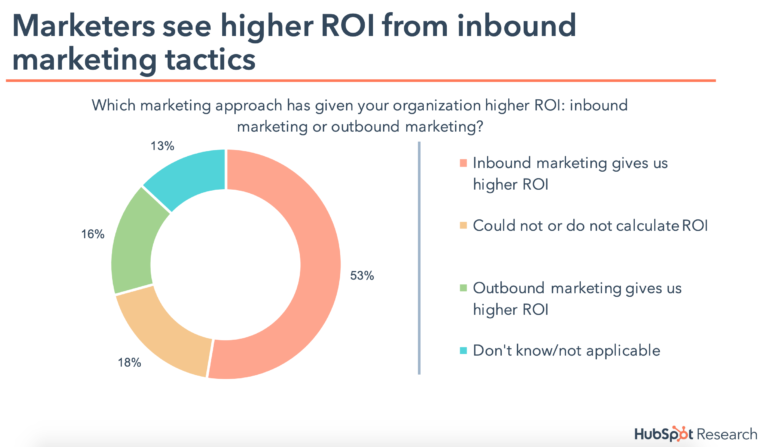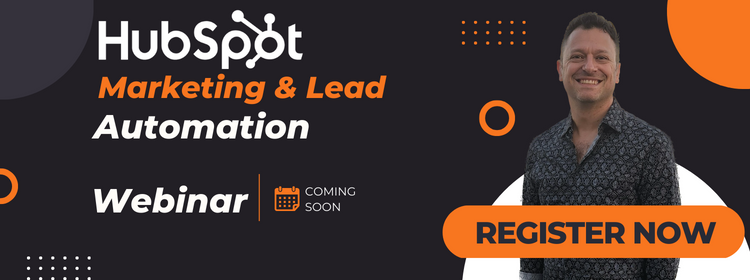Services List
In the current digital era, inbound marketing has emerged as a crucial growth driver for businesses across all industries. Businesses can attract prospective customers, engage them with relevant content, and convert them into paying customers by employing inbound marketing strategies and tactics. In this article, we will discuss the significance of inbound marketing as a growth driver, provide effective strategies and tactics across industries, and highlight HubSpot's role in inbound marketing success.

Covered in this article
Understanding the Importance of Inbound Marketing
Inbound Marketing Strategies and Tactics
The Role of HubSpot in Inbound Marketing Success
Inbound Marketing Across Industries
Inbound Marketing in a Nutshell
Inbound Marketing FAQs
Understanding the Importance of Inbound Marketing
Inbound marketing is a customer-centric strategy focusing on producing valuable content to attract prospective customers. By providing educational and informative content, businesses can establish themselves as industry thought leaders and gain the trust of prospective customers. This can ultimately result in an increase in website traffic, lead generation, and conversion rates.
In today's digital age, the importance of inbound marketing cannot be overstated. Traditional marketing methods such as print ads and television commercials are becoming less effective as a result of the rise of ad blockers and the increasing competition for consumer attention. Inbound marketing, on the other hand, provides a targeted and cost-effective method for businesses to reach potential customers and drive business growth.
Find out more about the importance of inbound marketing
Inbound Marketing Strategies and Tactics
Inbound marketing involves a range of strategies and tactics that businesses can use to attract, engage, and convert potential customers. Some of the most effective strategies and tactics include:
- Content Marketing: Content marketing involves creating valuable and educational content that attracts potential customers to your business. This can include blog posts, whitepapers, ebooks, and infographics, among others. Content should be informative, relevant, and valuable to potential customers, helping to establish businesses as thought leaders in their industry.
- Search Engine Optimisation (SEO): SEO involves optimising your website and content to improve your visibility in search engine results pages. This can include keyword research, on-page optimisation, and link building. By optimising your website for relevant keywords, businesses can increase their visibility and attract more potential customers.
- Social Media Marketing: Social media marketing involves using social media platforms like Facebook, Twitter, and LinkedIn to engage with potential customers and promote your brand. By sharing content, engaging with followers, and leveraging social media advertising, businesses can increase their reach and attract more potential customers.
- Email Marketing: Email marketing involves sending targeted and personalised emails to potential customers to nurture leads and promote your products or services. By providing valuable content and personalised offers, businesses can nurture leads and drive conversions.
- Marketing Automation: Marketing automation involves using software to automate repetitive marketing tasks like email marketing, social media posting, and lead scoring. By automating these tasks, businesses can save time and resources and focus on more strategic marketing initiatives.
By implementing these strategies and tactics, businesses can attract potential customers, engage them with relevant content, and ultimately convert them into paying customers.
Find out more about inbound marketing strategies
The Role of HubSpot in Inbound Marketing Success
HubSpot has emerged as a leader in inbound marketing and sales, providing a suite of tools and services that enable businesses to adopt inbound marketing strategies and achieve success. Some of the key features of HubSpot that are instrumental in inbound marketing success include:
- Marketing Hub: HubSpot's Marketing Hub provides a range of tools and services for inbound marketing, including email marketing, social media marketing, content creation and management, and marketing automation. By using the Marketing Hub, businesses can create and manage all aspects of their inbound marketing strategy in one central location.
- Sales Hub: HubSpot's Sales Hub provides tools for managing and nurturing leads, including lead tracking, contact management, and sales automation. By using the Sales Hub, businesses can manage the entire sales process and improve their conversion rates.
- Service Hub: HubSpot's Service Hub provides tools for managing and nurturing customer relationships, including customer feedback management, ticketing systems, and knowledge management. By using the Service Hub, businesses can provide exceptional customer service and build long-term relationships with their customers.
- HubSpot CRM: HubSpot's CRM provides a centralised platform for managing customer and leads data, enabling businesses to track interactions and behaviours and personalise their marketing and sales efforts. By using the HubSpot CRM, businesses can gain insights into their customers and improve their targeting and segmentation.
By leveraging these tools and services, businesses can adopt inbound marketing strategies and achieve success in driving business growth.
Find out more about the role of HubSpot in inbound marketing

Inbound Marketing Across Industries
Inbound marketing strategies and tactics can be effective across a range of industries, from B2B to B2C and everything in between. Some of the industries that can benefit from inbound marketing include:
- Technology: In the technology industry, inbound marketing can help businesses attract potential customers by providing educational content that highlights the benefits and features of their products or services. For example, by highlighting the latest innovations and how technology can solve the pain points of customers, businesses can establish themselves as thought leaders in their industry and build trust with potential customers.
- Financial Services: In the financial services industry, inbound marketing can help businesses attract potential customers by providing guidance such as personal finance tips, investment advice and various tools, like online calculators to manage personal budgets and determine retirement planning options. By providing valuable content, businesses can establish themselves as trusted advisors and build long-term relationships with their customers.
- Pharmaceuticals: In the pharmaceutical industry, inbound marketing can help businesses grow their audiences by providing educational content which informs patients and healthcare providers about the latest treatments and technologies in healthcare. This can help create awareness and promote engagement, which can contribute to improved health outcomes and patient satisfaction.
- Energy: Through inbound marketing in the energy sector, businesses can attract potential customers by providing insights that highlight their industry expertise and technological advancements in their products. This can help to differentiate businesses from the competition, attracting leads and promoting brand loyalty with customers in the long run.
- Professional Services: Professional services providers such as law firms, accounting firms and consulting agencies can find inbound marketing particularly effective to showcase their expertise, and build credibility with their audiences, as trusted advisors. This can help to increase lead generation and build long-term relationships with their customers.
- Real Estate: Real estate professionals such as agents, brokers, property managers and developers can apply inbound marketing to boost their businesses by sharing valuable adding content about their services. Examples include property maintenance tips that improve property values, project updates on new developments, home staging services and tenant screening services for rental properties. Using inbound marketing, players in the real estate industry can attract potential property buyers, sellers and investors.
Find out more about inbound marketing across industries
Inbound Marketing in a Nutshell
In the digital age we live in now, inbound marketing has become one of the most important ways for businesses to grow. By putting the customer first and using strategies and tactics like content marketing, SEO, social media marketing, email marketing, and marketing automation, businesses can attract potential customers, keep them interested with relevant content, and eventually turn them into paying customers. HubSpot's suite of tools and services for inbound marketing, sales, and customer service have helped businesses to successfully adopt inbound marketing strategies and grow their client bases.
To sum up, inbound marketing is an important part of any modern business growth plan. By giving potential customers useful and educational content, businesses can show that they are thought leaders in their industry and earn the trust of potential customers. This can eventually lead to more people visiting a website, better lead generation, and a higher rate of conversion.
HubSpot's set of tools and services for inbound marketing, sales, and customer service has been a big reason why businesses have been able to use inbound marketing and be successful with it. By using HubSpot's Marketing Hub, Sales Hub, Service Hub, and CRM, businesses can manage all parts of their inbound marketing strategy in one place, learn more about their customers, and improve their targeting and segmentation.
Strategies and tactics for inbound marketing can work in many different fields, from technology to real estate. Businesses can grow and be successful in today's competitive market by understanding how important inbound marketing is, using effective strategies and tactics, and making use of HubSpot's power.
Inbound Marketing FAQs
What are inbound and outbound in marketing?
Inbound marketing is a strategy that focuses on attracting potential customers by providing valuable content and experiences tailored to their needs and interests. It involves creating and sharing relevant content across multiple channels, such as blogs, social media, and email marketing, to draw in prospects and nurture them into customers. On the other hand, outbound marketing involves reaching out to potential customers through more traditional methods, such as cold calling, direct mail, and advertising. Outbound marketing is often considered more interruptive and less targeted than inbound marketing.
What is an example of inbound marketing?
An example of inbound marketing is creating and publishing high-quality, informative blog content that addresses the needs and pain points of your target audience. This content is designed to organically attract visitors to your website, engage them with valuable information, and ultimately convert them into leads and customers.
What are the 3 important things for inbound marketing?
The three important things for successful inbound marketing are:
- Content creation: Produce high-quality, engaging content that addresses the needs of your target audience and helps them solve their problems.
- Distribution and promotion: Promote your content across various channels, such as social media, email marketing, and use search engine optimisation (SEO), to reach a wider audience and drive organic traffic to your website.
- Lead nurturing and conversion: Use marketing automation tools, email campaigns, and targeted offers to guide prospects through the buyer's journey and ultimately convert them into customers.
Why is inbound marketing better?
Inbound marketing is considered better than traditional outbound marketing for several reasons:
- Cost-effectiveness: Inbound marketing tactics, such as content creation and SEO, generally require less financial investment than traditional advertising methods.
- Higher engagement: By providing valuable content tailored to your audience's needs, inbound marketing generates higher engagement rates and fosters more meaningful connections with prospects.
- Improved targeting: Inbound marketing allows you to focus on attracting the right audience, resulting in higher-quality leads and better chances of converting them into customers.
- Long-term benefits: Inbound marketing efforts, such as content creation and SEO, continue to generate results over time, building a solid foundation for ongoing lead generation and customer acquisition.
What is the first step in inbound marketing?
The first step in inbound marketing is to identify and understand your target audience. This involves creating detailed buyer personas that represent your ideal customers, taking into account their demographics, needs, pain points, and interests. By understanding your target audience, you can create relevant, valuable content and experiences that resonate with them and effectively guide them through the buyer's journey.





